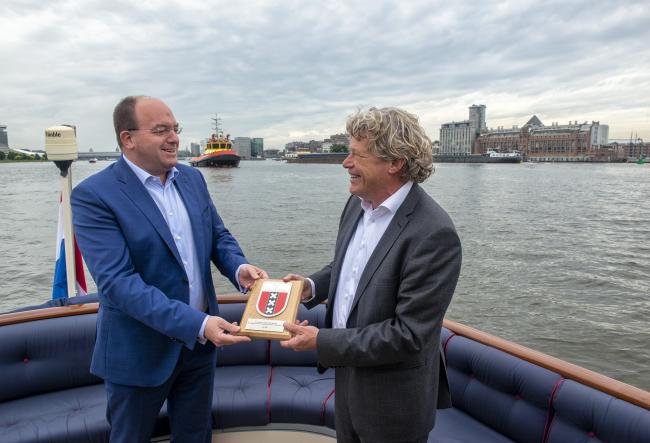Dutch Port of Amsterdam and German duisport have signed a memorandum of understanding (MOU) to expand their cooperation and jointly develop the hydrogen value chain and their hinterland network.
The MOU represents a new phase in the long-term partnership between the two ports that are directly connected via the river Rhine and multiple land routes and fulfil important roles as logistical hubs for the European hinterland.
As part of the cooperation, the ports of Amsterdam and Duisburg will jointly explore the potential of several hydrogen carrier technologies, with the aim of establishing an international supply chain for hydrogen on a commercial scale.
It is believed that the import, storage and distribution of green hydrogen carriers play an instrumental role in enabling the energy transition in the industrial and maritime sectors.
The Port of Amsterdam is part of the H2A consortium, which aims to import one million tonnes of green hydrogen to the port and includes multiple significant players in the hydrogen industry.
According to the partners, the H2A project forms a unique platform that can now be connected to duisport, allowing for the establishment of an end-to-end value chain for green hydrogen carriers between both ports.
Koen Overtoom, CEO of Port of Amsterdam, said: “I am very pleased to announce the partnership between duisport and Port of Amsterdam. Both ports recognize the great value of joining forces in developing new corridors for sustainable energy carriers, with the aim of decarbonisation of international supply chains. This partnership strengthens our strategic initiatives, aimed at taking the lead in facilitating the energy transition, and complements our strong collaborations with our trusted partners.”
In addition to the development of the green hydrogen value chain, duisport and Port of Amsterdam will set up joint commercial projects to further develop their hinterland networks.
“By expanding our trusting partnership with the Port of Amsterdam, we are sending an important signal across national borders: only together will we be able to overcome global challenges such as the energy transition”, added Markus Bangen, CEO of duisport.
“I am therefore looking forward to further close cooperation in order to rapidly advance the development of a Europe-wide hydrogen network and to strengthen our function as central logistics hubs for Europe.”
Meanwhile, the German port is strengthening collaboration with another port in the Netherlands. Last month, the port authorities of Duisburg and Rotterdam signed a letter of intent (LOI) to renew and expand their collaboration, as well as to look for ways for establishing future hydrogen hubs.
The port officials believe that using sustainable hydrogen substantially can contribute to the European objectives of reducing climate change and increasing Europe’s energy independence.
Source: Offshore Energy





